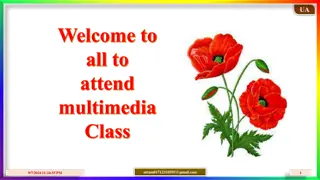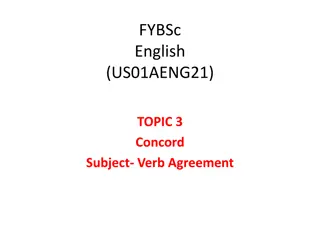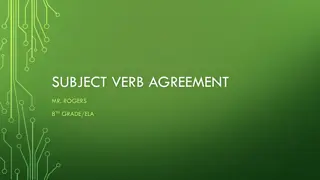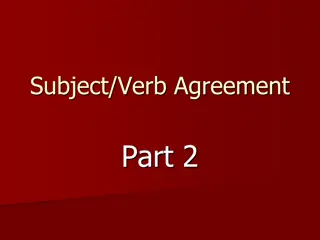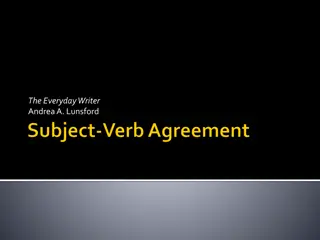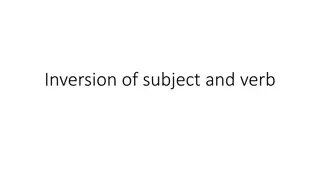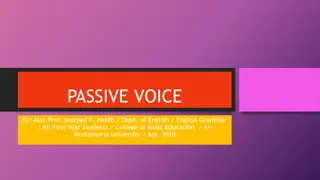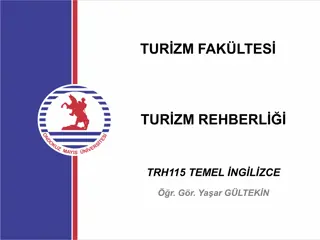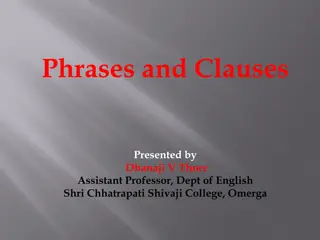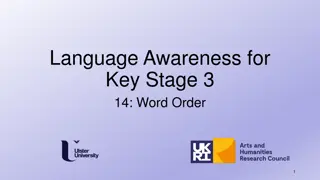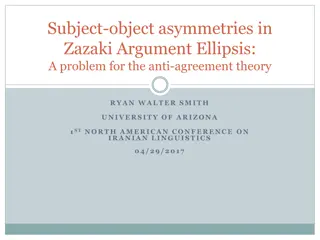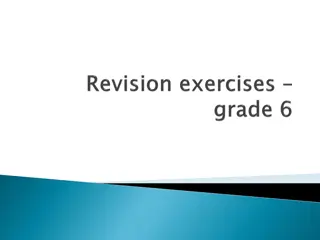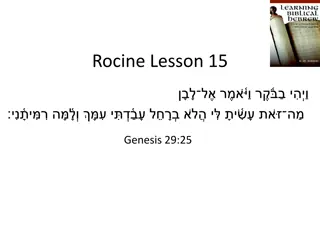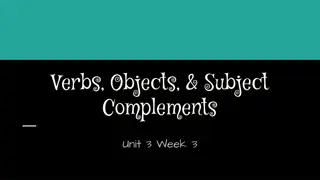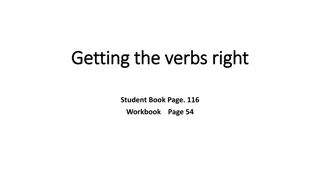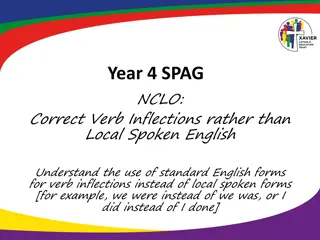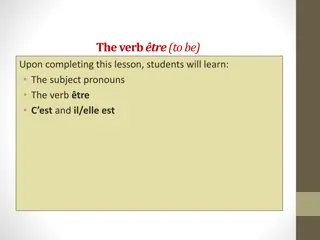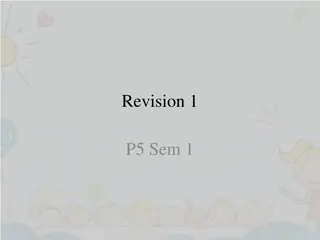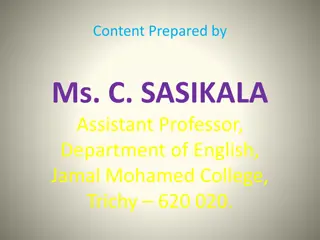Subject-Verb Agreement Rules in English Grammar
Learn essential rules of subject-verb agreement in English grammar with examples. Understand when to use singular or plural verbs based on different subject types and connections. Improve your sentence structure and communication skills.
Download Presentation

Please find below an Image/Link to download the presentation.
The content on the website is provided AS IS for your information and personal use only. It may not be sold, licensed, or shared on other websites without obtaining consent from the author. Download presentation by click this link. If you encounter any issues during the download, it is possible that the publisher has removed the file from their server.
E N D
Presentation Transcript
BY Mr. M. Mathan, Assistant Professor of English, Date: 11-08-2020 Class: II BSc. Mathematics,
Subject(noun) denotes the doer of the action.(name, pronoun) Verb denotes of action.(main verbs, be verbs) Ex: He goes to college S V
Singular subjects need singular verbs. Ex: My Uncle / lives in Chennai. Singular subject / singular verb Delhi is a metropolitan city.
Plural subjects need plural verbs. Ex: The Players / are very tired Plural subjects / Plural verbs They have passed all the exams.
When and connects two subjects plural verb is used. Ex: Shewag and Ghambir live in Delhi Subject 1 Subject 2 and plural verb Balaji and Jeeva work hard.
Two Nouns joined by and are regarded denoting a single object or idea, the verb is singular. Ex: Bread and Butter tastes good. Note: bread and butter denote as a food(single object or idea). The Novelist and poet is dead.
Two subjects are joined by with or as well as ,the verb takes the subject of the former. Ex: The horse as well as the rider was hurt. Note: former means first The coach with the players is arriving today.
Two singulars are joined by not only. But also the verb is singular. Ex: Not only Rahul but also Ravi is participating in the competition. Not only Australia but also India gives importance to cricket.
Or, eitheror, and neither nor connects two singular subjects, the verb is singular Ex: Either Aswin or Jadeja is organizing the tournament. My mother or My sister is accompanying me to England.
Or, eitheror, and neither nor connects two plural subjects, the verb is plural. Ex: Neither their students nor their parents have left
The singular subject and plural subject are connected in this way, the verb takes the subject nearer to it. Ex: Either I or my friends drive the car Plural subject Plural verb
Two subjects are connected by as well as , with , along with , together with , or in addition to the verb agrees with the first subject. Ex: The students as well as the teachers are here. Suja , along with her children, is going to Bangalore.
One/Each/Every/Either/Neither + Singular noun + singular verb. Ex: One Student is absent. Each Child was given a prize


